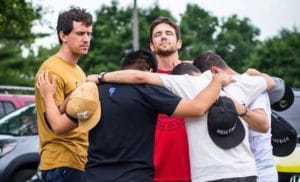 There is a growing recognition in global missions that leadership from a given local community is needed for a healthy local church. The Lausanne Movement, a group of 150 nations and leaders who are passionately pursuing world missions, says:
There is a growing recognition in global missions that leadership from a given local community is needed for a healthy local church. The Lausanne Movement, a group of 150 nations and leaders who are passionately pursuing world missions, says:
“We also acknowledge that some of our missions have been too slow to equip and encourage national leaders to assume their rightful responsibilities. Yet we are committed to indigenous principles, and long that every church will have national leaders who manifest a Christian style of leadership in terms not of domination but of service.”
Why is indigenous leadership important? One reason is that outside leaders coming into a culture can easily mishandle important cultural aspects while building the church. Western missionaries, in an effort to bring the gospel, can bring alien cultural practices. Sometimes it is as explicit as colonization, but many times these cultural practices are more subtle, though still dangerous. This can confuse the gospel, damage the discipleship process, and the growth of the church. The ability to discern what cultural practices are to be accepted and used in the local church is difficult. Local believers, and thus local leaders, are at a far greater advantage in this contextualization process. Again, the Lausanne Conference addresses this by saying:
Culture must always be tested and judged by Scripture. Because men and women are God’s creatures, some of their culture is rich in beauty and goodness. Because they are fallen, all of it is tainted with sin and some of it is demonic. The gospel does not presuppose the superiority of any culture to another, but evaluates all cultures according to its own criteria of truth and righteousness, and insists on moral absolutes in every culture. Missions have all too frequently exported with the gospel an alien culture and churches have sometimes been in bondage to culture rather than to Scripture. Christ’s evangelists must humbly seek to empty themselves of all but their personal authenticity in order to become the servants of others, and churches must seek to transform and enrich culture, all for the glory of God.
 Local leadership also puts the emphasis on discipleship, the apprenticing of local leaders. It will take investment in a few so that they can then take the torch and be the ones to build the church in that area. We have seen that normatively, local leaders are also more effective because they can relate to the local people better than an outside missionary can relate. We see this from the start of the church. Paul always exhorted his younger pastors to build up a team of elders, or leaders of the church who were local (2 Tim 2:2; Titus 1:5).
Local leadership also puts the emphasis on discipleship, the apprenticing of local leaders. It will take investment in a few so that they can then take the torch and be the ones to build the church in that area. We have seen that normatively, local leaders are also more effective because they can relate to the local people better than an outside missionary can relate. We see this from the start of the church. Paul always exhorted his younger pastors to build up a team of elders, or leaders of the church who were local (2 Tim 2:2; Titus 1:5).
This idea of local leadership fits well with Break Free because we have access to a small group of men in every major city center around the world: bboys. Since we break, we have an immediate connection. We can build relationships, and the goal is to see the local bboys become local leaders. Local leaders who are passionate disciple-makers. They will be the ones to lead their families, churches, neighborhoods and ministries. The vast majority of bboys are young men (ages 18-30) living in major city centers, on the cusp of leading. They are in an ideal position for influence. So in our effort to reach the world, we will reach these young men, and disciple them to be the leaders of their cities. Then the exponential process takes over, and by God’s power, can multiply quickly.
I hope you see that Break Free is bigger than breakdancing.  Our focus in ministry is raising up local leaders in major city centers all over the world. We gain access to potential leaders through dance. But what happens after the dance is what we are passionate about.
Our focus in ministry is raising up local leaders in major city centers all over the world. We gain access to potential leaders through dance. But what happens after the dance is what we are passionate about.
